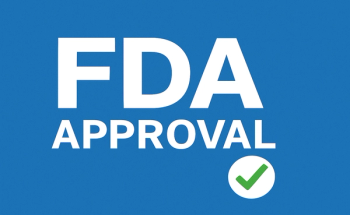
Study Summary: Abemaciclib as Initial Therapy in Patients With Advanced Breast Cancer (MONARCH 3)
Background
Abemaciclib is an orally administered, selective cyclin-dependent kinases (CDK)-4 and -6 inhibitor, that is structurally distinct from other CDK-4 and-6 inhibitors. In the phase 2 MONARCH-1 trial, abemaciclib monotherapy demonstrated clinical efficacy in patients with hormone-refractory, human epidermal growth factor (HER)-2 negative metastatic breast cancer. In the phase 3 MONARCH-2 trial, abemaciclib plus fulvestrant significantly improved progression-free survival (PFS) in hormone receptor-positive, HER-2 negative patients with advanced breast cancer whose disease had progressed while receiving endocrine therapy.1
Methods
The MONARCH-3 trial is a phase 3, randomized, double-blinded, placebo-controlled trial that evaluated the use of abemaciclib alone and in combination with a non-steroidal aromatase inhibitor (eg, anastrozole or letrozole) in women with hormone receptor-positive, HER-2 negative, advanced breast cancer. Patients were required to have either measurable disease or non-measurable bone-only disease at baseline. Patients receiving systemic therapy for advanced disease were excluded from the trial. Prior endocrine therapy in the neoadjuvant or adjuvant setting was allowed if the patient had a disease-free interval >12 months from the completion of endocrine therapy.1
Patients were randomized 2:1 to abemaciclib plus non-steroidal aromatase or placebo plus non-steroidal aromatase inhibitor. Randomization was stratified according to metastatic site (eg, visceral, bone only, or other) and prior neoadjuvant or adjuvant endocrine therapy (eg, aromatase inhibitor, no endocrine therapy, or other). Abemaciclib was administered as 150 mg orally twice a day, anastrozole was administered as 1 mg orally once a day, and letrozole was administered as 2.5 mg once a day. Abemaciclib dose reductions were permitted and dose reductions for the non-steroidal aromatase inhibitor products were not allowed. Treatment was continued until disease progression, unacceptable toxicity, death, or patient withdrawal from the study.1
The primary endpoint was investigator-assessed PFS. Secondary endpoints included objective response rate ([ORR] complete responses plus partial responses), duration of response ([DoR] time from complete response or partial response until progressive disease or death), clinical benefit rate ([CBR] complete response + partial response + stable disease ≥6 months), along with safety and tolerability.1
Baseline Characteristics
A total of 493 patients were randomized to either abemaciclib plus non-steroidal aromatase inhibitor (n = 328) or placebo plus non-steroidal aromatase inhibitor (n = 165). Baseline characteristics were generally well balanced between groups. At baseline, 52.9% of patients had visceral disease, and 39.8% had de novo metastatic breast cancer. Overall, 46.7% of patients had received neoadjuvant or adjuvant endocrine therapy. Of these, 27.4% had received prior therapy with an aromatase inhibitor.1
Efficacy
At the interim analysis data cut-off, 49.4% of patients in the abemaciclib group and 38.8% of patients in the placebo group were receiving the study drug. Patients in the abemaciclib group received a median of 16 cycles, whereas patients in the placebo group received a median of 15 cycles. Most patients (79.1%) were treated with letrozole during the study.1
In the intention-to-treat (ITT) population, there were 194 PFS events (abemaciclib: 108 events [32.9%]; placebo: 86 events [52.1%]). Median length of follow-up was 17.8 months. PFS was significantly longer with abemaciclib vs. placebo (P <.000021). Median PFS was not reached (NR) with abemaciclib and 14.7 months with placebo. The PFS results were confirmed by a blinded central review (P = .000102). A PFS benefit was demonstrated across all prespecified subgroups (ie, age, race, metastatic site, prior endocrine therapy, Eastern Cooperative Oncology Group performance status, progesterone receptor status, measurable disease, liver metastases, and treatment-free interval). Greater PFS hazard ratios were associated with Asian ethnicity versus white populations. In the placebo group, presence of negative prognostic factors (eg, treatment-free interval <36 months or liver metastases) were associated with poorer outcomes, whereas presence of positive prognostic factors was associated with better outcomes. Patients having a short treatment-free interval or liver metastases had the most benefit from abemaciclib.1
ORR was 48.2% with abemaciclib and 34.5% with placebo (P = .002) and CBR did not significantly differ between groups. Median DoR was NR with abemaciclib and 14.1% with placebo. In patients having measurable disease, ORR was 59.2% with abemaciclib and 43.8% with placebo (P = .004) and CBR was 79.4% with abemaciclib and 69.2% with placebo (P = .024).1
Safety
In the safety population, the most commonly reported adverse events (AEs), in any grade with abemaciclib versus placebo, were diarrhea (81.3% vs 29.8%), neutropenia (41.3% vs 1.9%), fatigue (40.1% vs 31.7%), infections/infestations (39.1% vs 28.6%), and nausea (38.5% vs 19.9%). Most events were grade ≤2. Serious AEs were reported in 27.5% of patients who received abemaciclib and in 14.9% of patients who received placebo; lung infections were the most commonly reported event (2.8% vs 0%, respectively). Neutropenia was reported in 41.3% of patients who received abemaciclib. Infections were reported in 39.1% of abemaciclib-treated patients and 28.6% of placebo-treated patients, with many events being grade ≤2. Venous thromboembolic events were reported in 4.9% of abemaciclib-treated patients and 0.6% of placebo-treated patients. Increased liver transaminases (ie, alanine aminotransferase [ALT] and aspartate aminotransferase [AST]) were also reported. Overall, 47.6% of patients who received abemaciclib experienced increased ALT levels versus 25.2% placebo-treated patients. Increased AST levels were reported in 36.7% of abemaciclib-treated patients and 23.2% of placebo-treated patients.1
Dose reductions, interruptions, and discontinuations due to AEs were more commonly reported with abemaciclib versus placebo (dose reductions, 43.4% vs 6.2%; dose interruptions, 56.3% vs 19.3%; and discontinuations, 19.6% vs 2.5%).1
At data cut-off, 11 patients in the abemaciclib group died either while receiving treatment or within 30 days of discontinuation (8 of the events were attributed to AEs) versus 3 patients in the placebo group (2 of the events were attributed to AEs).1
Conclusions
The addition of abemaciclib to a non-steroidal aromatase inhibitor was effective as a first-line treatment in women with hormone receptor-positive, HER-2 negative, advanced breast cancer In the MONARCH-3 trial, abemaciclib demonstrated a tolerable safety profile.1
Reference
1. Goetz MP, Toi M, Campone M, et al. MONARCH 3: abemaciclib as initial therapy for advanced breast cancer. J Clin Oncol. 2017;35(32):3638-3646. doi: 10.1200/JCO.2017.75.6155
Newsletter
Stay ahead of policy, cost, and value—subscribe to AJMC for expert insights at the intersection of clinical care and health economics.








